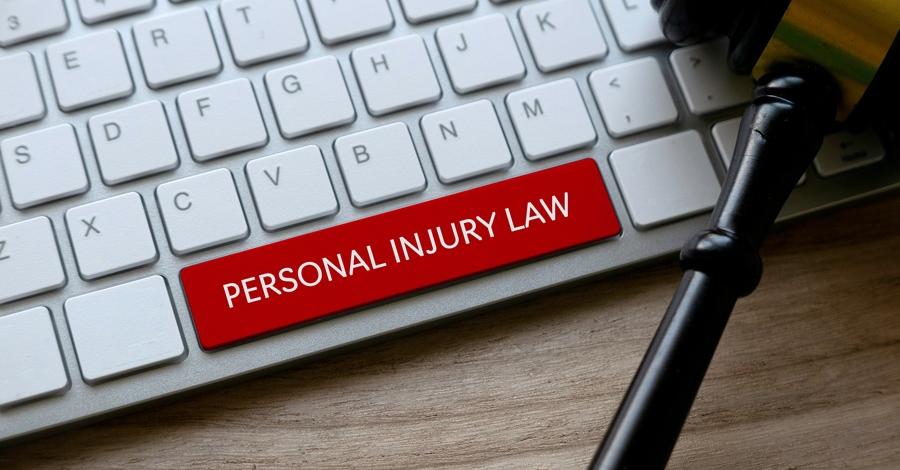In the complex landscape of the legal system, paralegals play a crucial role in supporting attorneys and ensuring the smooth progression of legal cases. This is particularly evident in personal injury cases, where the meticulous work of paralegals often goes unnoticed but is essential for the success of the legal proceedings. This article aims to dive into the responsibilities of paralegals in personal injury cases, shedding light on their contributions to the legal process.
What is a Paralegal?
A paralegal is a professional who assists lawyers in their daily tasks, contributing significantly to case preparation, client communication, and legal research. While paralegals cannot provide legal advice independently, their role is instrumental in supporting personal injury attorneys throughout various stages of a legal matter.
Personal injury cases involve individuals seeking compensation for harm or injury caused by the negligence of another party. These cases can range from car accidents and medical malpractice to slip and fall incidents. Given the intricate nature of personal injury law, having a skilled legal team, including paralegals, is vital to navigating the complexities of these cases.
Paralegals are the backbone of a legal team, especially in personal injury cases where the volume of documentation and research is substantial. Their proficiency in legal procedures and attention to detail enables attorneys to focus on legal strategy and client representation. Understanding the specific responsibilities of paralegals in personal injury cases provides insight into their indispensable role.
Responsibilities of a Paralegal in Personal Injury Cases
Case Preparation
One of the primary responsibilities of a paralegal in personal injury cases is to gather and organize evidence. This involves obtaining medical records, accident reports, witness statements, and any other relevant information to strengthen the client’s case. The ability to meticulously collect and manage evidence is crucial for building a strong foundation for legal proceedings.
Paralegals are often tasked with extensive legal research to support attorneys in understanding relevant laws, precedents, and regulations pertaining to the personal injury case. This involves examining statutes, case law, and legal articles to ensure that the legal arguments presented are well-informed and comprehensive.
Client Communication
Paralegals act as a bridge between attorneys and clients, conducting initial interviews to gather essential information about the incident. These interviews help in understanding the client’s perspective, establishing rapport, and obtaining details that can be vital for the case. Clear communication from the outset is essential for building a strong attorney-client relationship.
Throughout the legal process, paralegals keep clients informed about the progress of their case. This includes updates on the status of legal filings, responses from opposing parties, and any other developments. Timely communication is crucial for maintaining transparency and ensuring that clients are actively engaged in their legal proceedings.
Drafting Legal Documents
Paralegals play a key role in drafting legal documents, including complaints that initiate a personal injury lawsuit. This involves carefully outlining the facts of the case, the legal basis for the claim, and the relief sought. Precision in drafting is essential, as these documents serve as the foundation for the entire legal action.
During the discovery phase, paralegals draft requests for information, interrogatories, and requests for production of documents. This involves crafting clear and comprehensive requests to obtain evidence from the opposing party. The ability to navigate the intricacies of discovery is a testament to the paralegal’s expertise.
Paralegals often engage in communication with opposing counsel regarding various aspects of the case. This can include negotiating settlement terms, exchanging information, and addressing procedural matters. Effective correspondence requires a combination of legal knowledge and diplomatic communication skills.
Collaborative Work with Attorneys
Team Dynamics
The collaboration between attorneys and paralegals is akin to a well-choreographed dance. Paralegals support attorneys by ensuring that all necessary tasks are completed efficiently, allowing attorneys to focus on legal strategy and client advocacy. The synergy between these professionals is fundamental to the success of a legal team.
Support During Trial Preparation
As a case progresses towards trial, paralegals play a pivotal role in preparing attorneys for courtroom proceedings. This includes organizing trial exhibits, coordinating witness schedules, and assisting in the preparation of legal arguments. The thorough preparation facilitated by paralegals is integral to presenting a compelling case in court.
Assisting in Courtroom Proceedings
While paralegals cannot represent clients in court, their presence during hearings and trials is invaluable. Paralegals provide logistical support, ensuring that all necessary documents are readily available, and they assist attorneys in managing the flow of information during proceedings. This support allows attorneys to focus on presenting the case effectively.
Legal Research and Analysis
Investigating Relevant Laws and Precedents
In-depth legal research is a cornerstone of a paralegal’s role. Investigating relevant laws and precedents allows paralegals to provide attorneys with the information needed to make informed decisions and develop sound legal strategies. This involves analyzing how existing laws and prior court decisions may impact the current case.
Summarizing Legal Opinions
Paralegals often summarize legal opinions, enabling attorneys to quickly grasp the key points of complex judgments. These summaries aid in the development of legal arguments and contribute to the overall legal strategy. The ability to distill intricate legal concepts into accessible summaries showcases the analytical skills of paralegals.
Providing Insight on Case Strategy
With a deep understanding of the legal landscape, paralegals contribute valuable insights to case strategy discussions. Their perspective on the strengths and weaknesses of legal arguments, based on thorough research and analysis, assists attorneys in making well-informed decisions. This collaborative approach enhances the overall effectiveness of the legal team.
Administrative Tasks
Managing Deadlines
In the legal field, adherence to deadlines is critical. Paralegals excel in managing deadlines, ensuring that documents are filed timely, responses are submitted promptly, and all procedural requirements are met. This organizational skill is fundamental to the smooth functioning of legal proceedings.
Document Management
Personal injury cases involve extensive documentation. Paralegals are responsible for managing and organizing this documentation, creating a streamlined system that facilitates easy access to critical information. Efficient document management is essential for quick retrieval of evidence and maintaining a comprehensive case file.
Organizing and Maintaining Case Files
A well-organized case file is a testament to the diligence of a paralegal. Maintaining organized case files is not only essential for day-to-day tasks but also for future reference and potential appeals. Paralegals ensure that all relevant documents are appropriately labeled, categorized, and easily accessible.
In conclusion, the role of a paralegal in personal injury cases is multifaceted and indispensable. From case preparation and client communication to legal research and administrative tasks, paralegals contribute significantly to the overall success of legal proceedings. The collaborative dynamics between attorneys and paralegals underscore the importance of a well-functioning legal team in pursuing justice for those involved in personal injury cases. As we appreciate the intricate work of paralegals, it becomes evident that their dedication and expertise are vital components in the pursuit of legal justice.






